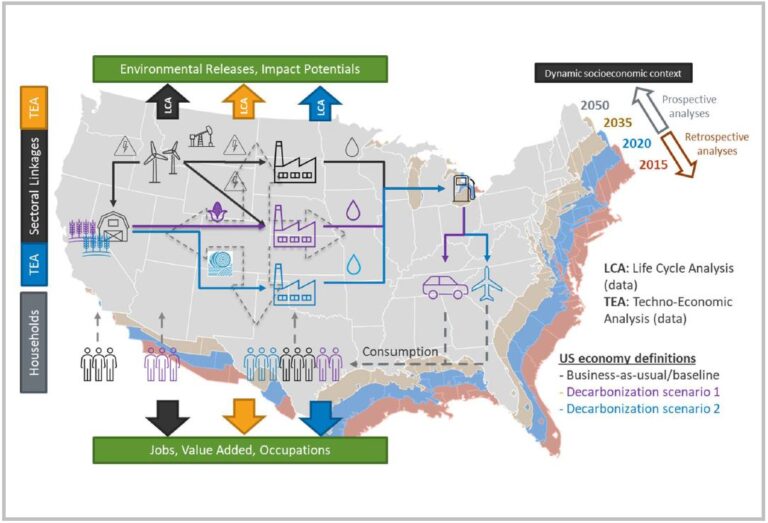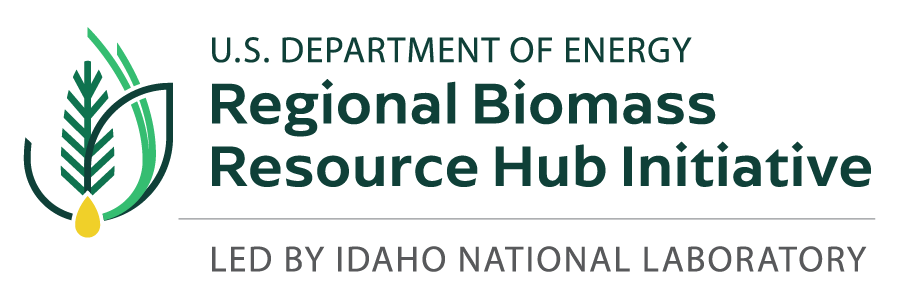Description
NREL offers economy-wide scenario analysis for the deployment of new individual technologies or technology portfolios at industry scale, measuring impacts across economic (sectoral activity, value-added, earnings), environmental (air, water and soil emissions), potential impact (life-cycle analysis impact factors) and workforce (total jobs, occupation types and characteristics) metrics. For this, we use a hybrid LCA environmentally-extended input-output framework called EMPLOY. EMPLOY complements pathway-specific techno-economic analysis and life cycle assessments, using a top-down framework to provide retrospective (2002-2017) and prospective (2020-2050) economy-wide assessments for new or existing technologies with regional level detail (state), and determine tradeoffs between deployment strategies for bioeconomy commodities.
Capability Bounds
EMPLOY covers several commercial and near-commercial biofuel routes, including sustainable aviation fuels, and an emerging pathway for plastics upcycling. The model is currently restricted to domestic production and supply-chains.
Unique Aspects
EMPLOY provides a consistent framework to assess economy-wide multi-dimensional metrics (workforce, economic, environmental) across biofuel technologies and deployment scenarios. It expands on traditional process based LCA analyses by providing an expanded scope (whole economy), and additional economic/workforce metrics.
Availability
The model was developed for internal use and is not publicly available.
Benefit
EMPLOY can be expanded to any technology by linking to techno-economic analysis data, and long or short-term deployment scenarios are flexible. EMPLOY’s link to NREL’s ReEDS model also allows simulating varying power generation mixes linked to any deployment strategy.
Capability Expert(s)
Andre F. T. Avelino, Yimin Zhang, Alberto Franco Solis

